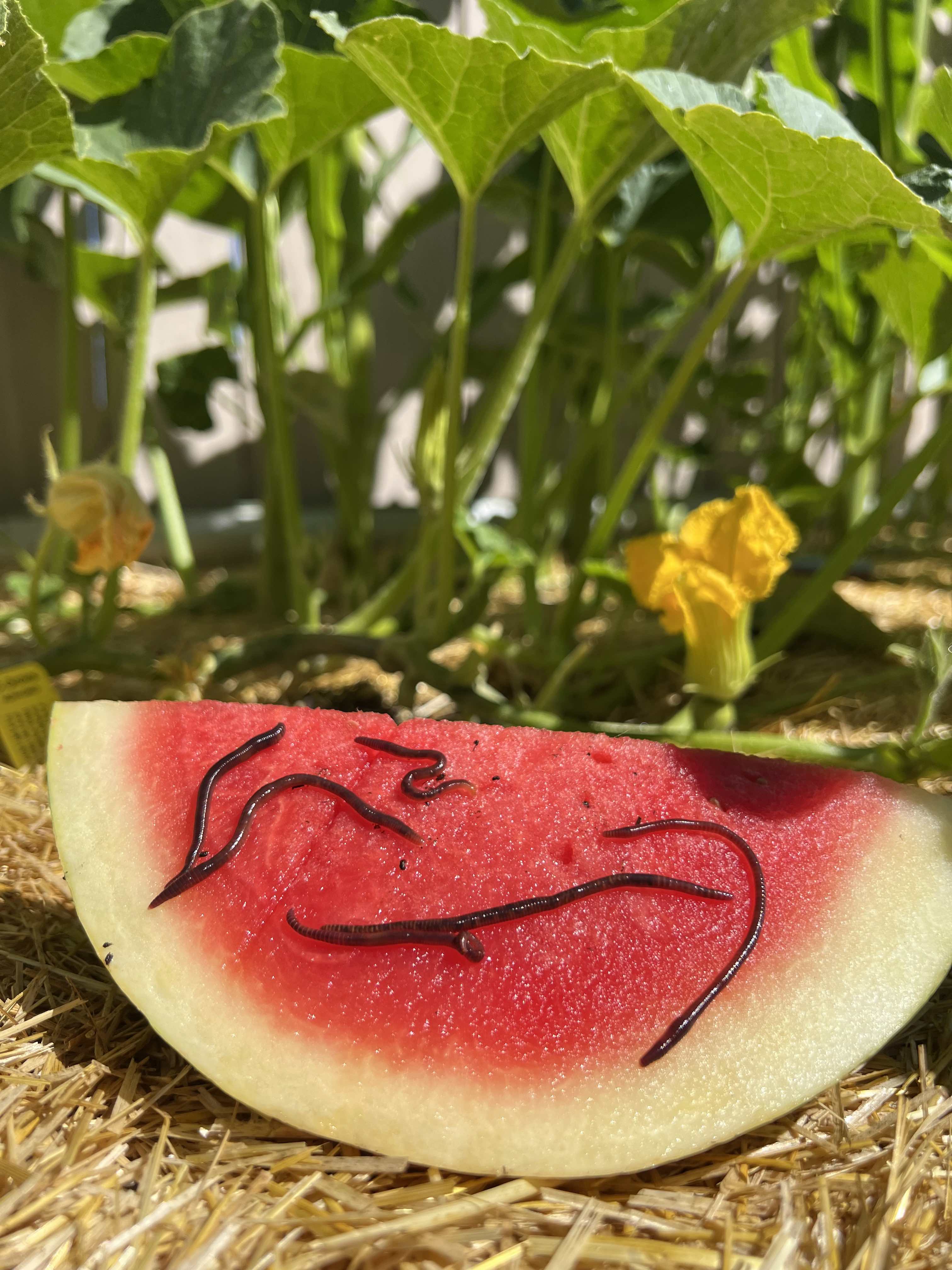Red Wiggler Worms - Vital for Healthy and Productive Gardens
Red Wiggler Worms - Vital for Healthy and Productive Gardens
Blog Article
Red Wiggler Worms Demystified: Unlocking the Keys of Vermiculture for Greener Living and Nutrient-Rich Soil
In the realm of lasting techniques for enriching soil quality and promoting eco-conscious living, red wiggler worms play a crucial yet typically forgotten duty. These humble creatures have the impressive capacity to transform organic waste into nutrient-rich castings that offer as a powerful all-natural plant food. By diving right into the globe of vermiculture, one can uncover a plethora of benefits that extend far beyond standard composting approaches. Recognizing the intricacies of taking care of these worms, maximizing their setting, and using their spreadings can cause a greener way of life and much healthier dirt for plants to grow.
The Duty of Red Wiggler Worms
Red Wiggler worms play an essential role in composting systems by successfully damaging down organic issue right into nutrient-rich castings. These voracious eaters eat a selection of organic materials, such as cooking area scraps, backyard waste, and paper products. As they feed, the worms' gastrointestinal procedures break down the organic issue right into a fine, dark, and nutrient-dense product understood as worm spreadings or vermicompost.
The castings produced by Red Wiggler worms are very useful for dirt health and wellness and plant growth. They are rich in crucial nutrients like nitrogen, phosphorus, and potassium, which are essential for supporting healthy and balanced plant advancement. Furthermore, worm castings have useful microorganisms and enzymes that aid boost soil structure, boost water retention, and enhance nutrient uptake by plants.
Benefits of Vermicomposting

It enhances dirt framework, boosts soil oygenation, and enhances dirt wetness retention. Vermicompost also improves the soil with essential nutrients like nitrogen, phosphorus, and potassium, promoting plant development and overall dirt fertility.
Furthermore, vermicomposting supports sustainable horticulture techniques by supplying a all-natural and chemical-free alternative to synthetic fertilizers. Red Wiggler Worms. This environmentally friendly method not just enhances the dirt but additionally helps in reducing reliance on unsafe chemicals, promoting a greener and a lot more sustainable means of horticulture
Establishing a Worm Container
When establishing a worm bin for vermicomposting, correct setup is important to make certain the success of the composting procedure. The initial action in setting up a worm container is picking a suitable container. This can be a plastic bin or wooden box that provides enough space for the worms to walk around and has proper drain openings to stop waterlogging. Next, a bed linen product such as shredded newspaper, cardboard, or coconut coir should be contributed to the container. This bedding supplies a comfortable environment for the worms and aids preserve dampness degrees.
After adding the bed linens, introduce the red wiggler worms to the container. The worms must then be provided with food scraps here such as fruit and veggie peels, coffee premises, and eggshells.
Frequently keep an eye on the moisture degrees and temperature in the worm bin to make sure ideal problems for the worms. With proper arrangement and upkeep, the worm container will effectively transform organic waste right into nutrient-rich compost for your plants and yard.
Collecting Worm Castings
To successfully gather nutrient-rich worm spreadings from your vermicomposting system, a systematic harvesting technique is important. There are a few vital actions to comply with to ensure an effective process when it comes time to gather the worm castings. Firstly, stop including fresh food scraps away of the worm container for a number of weeks before harvesting. This motivates the worms to move sideways with fresh bedding and food, making it much easier to dig the spreadings from the opposite side.

Troubleshooting Common Issues
Identifying and dealing with common obstacles that might occur throughout the vermicomposting procedure is important for keeping a healthy and balanced and effective worm container. One common problem that vermicomposters experience is overfeeding. Adding excess food scraps can lead to an accumulation of wetness and level of acidity in the worm bin, possibly damaging the worms. To stop this, feed the worms in small amounts, making certain that the food scraps are properly broken down prior to adding more. An additional problem is undesirable odors emanating from the worm bin. Foul scents indicate anaerobic conditions, typically triggered by overwatering or inadequate ventilation. To remedy this, readjust the wetness levels by adding dry bed linen products like shredded newspaper or cardboard and boost important link aeration by turning the bed linen routinely.
Furthermore, if the worm population is declining or the worms appear unhealthy, it might be as a result of ecological stressors such as extreme temperatures or pH degrees. Keeping track of these elements and making necessary adjustments is vital for the health of the worms. By repairing these usual problems immediately, vermicomposters can make sure a smooth and successful vermicomposting procedure while keeping a growing worm population.

Verdict
In verdict, red wiggler worms play an essential role in vermiculture by breaking down organic matter into nutrient-rich soil. Establishing up a worm container is necessary for successful vermiculture, and harvesting worm spreadings provides important garden compost for gardening.
As they feed, the worms' digestive processes break down the natural matter right into a fine, dark, and nutrient-dense material understood as worm spreadings or vermicompost.
The castings created by Red Wiggler worms are highly valuable for soil health and plant growth. Adding excess food scraps can lead to a build-up of wetness and acidity in the worm bin, potentially harming the worms.Additionally, if the try these out worm populace is declining or the worms appear unhealthy, it can be due to ecological stress factors such as extreme temperatures or pH levels. Establishing up a worm bin is crucial for successful vermiculture, and collecting worm spreadings supplies valuable garden compost for gardening.
Report this page